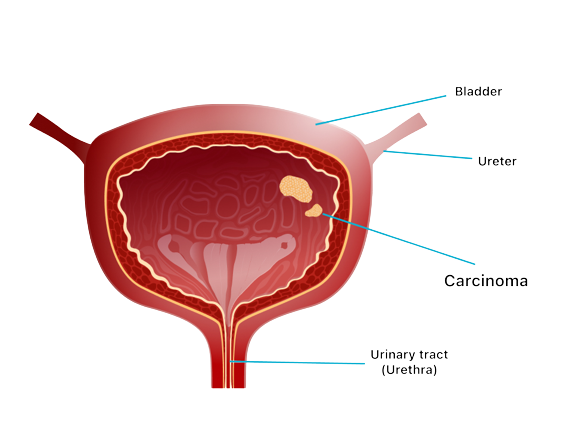Colon Cancer
Overview Of Colorectal Cancer
Colon cancer is a type of cancer that begins in the large intestine (colon). The colon is the final part of the digestive tract.
Colon cancer typically affects older adults, though it can happen at any age. It usually begins as small, noncancerous (benign) clumps of cells called polyps that form on the inside of the colon. Over time some of these polyps can become colon cancers.
Polyps may be small and produce few, if any, symptoms. For this reason, doctors recommend regular screening tests to help prevent colon cancer by identifying and removing polyps before they turn into cancer.
If colon cancer develops, many treatments are available to help control it, including surgery, radiation therapy and drug treatments, such as chemotherapy, targeted therapy and immunotherapy.
Colon cancer is sometimes called colorectal cancer, which is a term that combines colon cancer and rectal cancer, which begins in the rectum.
Symptoms Of Colon Cancer
Signs and symptoms of colon cancer include:
- A persistent change in your bowel habits, including diarrhea or constipation or a change in the consistency of your stool
- Rectal bleeding or blood in your stool
- Persistent abdominal discomfort, such as cramps, gas or pain
- A feeling that your bowel doesn't empty completely
- Weakness or fatigue
- Unexplained weight loss
Many people with colon cancer experience no symptoms in the early stages of the disease. When symptoms appear, they'll likely vary, depending on the cancer's size and location in your large intestine.
Causes Of Colon Cancer
Doctors aren't certain what causes most colon cancers.
In general, colon cancer begins when healthy cells in the colon develop changes (mutations) in their DNA. A cell's DNA contains a set of instructions that tell a cell what to do.
Healthy cells grow and divide in an orderly way to keep your body functioning normally. But when a cell's DNA is damaged and becomes cancerous, cells continue to divide — even when new cells aren't needed. As the cells accumulate, they form a tumor.
With time, the cancer cells can grow to invade and destroy normal tissue nearby. And cancerous cells can travel to other parts of the body to form deposits there (metastasis).
Colorectal Cancer And Januvia (Sitagliptin)
Brand-name Januvia (Sitagliptin) products are commonly used in the United States and worldwide to treat Diabetes.
One of the types of cancer linked to overexposure to NDMA is colorectal cancer.
Many people who have taken Januvia (Sitagliptin) regularly, or have lost a loved one to cancer after using Januvia (Sitagliptin) products, are now suing Januvia (Sitagliptin) drugmakers for failing to disclose the potential link between use of their products and various cancers.
How To Know If Januvia (Sitagliptin) Caused Your Colorectal Cancer
Januvia (Sitagliptin) is a brand name for the generic drug, Januvia (Sitagliptin). Not all Januvia (Sitagliptin) products are necessarily believed to be contaminated with dangerous amounts of NDMA, according to the U.S. Food and Drug Administration.
If you are concerned about your risk for developing colon cancer after taking Januvia (Sitagliptin), or wish to know if Januvia (Sitagliptin) caused your colorectal cancer, your best course of action is to talk to your doctor or cancer treatment team. Your doctor can evaluate your risk, or probable causes of your colon cancer through careful consideration of your medical history and Januvia (Sitagliptin) use.
At this time, the FDA does not know how many people are likely to have been affected by the toxic amounts of NDMA in Januvia (Sitagliptin) and Januvia (Sitagliptin) products. An investigation into the scope of the issue and the likelihood of developing cancer after taking Januvia (Sitagliptin) is currently ongoing.
What To Do If You Think Januvia (Sitagliptin) Caused Your Colon Cancer Lawsuit
If you were diagnosed with colorectal cancer after taking Januvia (Sitagliptin) regularly for a health problem, you are not alone. Several class action and individual lawsuits have been filed across the U.S. by individuals and loved ones who received a cancer diagnosis after taking Januvia (Sitagliptin) or Januvia (Sitagliptin) products.
The basis for these lawsuits is generally one of negligence. Negligence is a legal theory in personal injury law that traces personal injury or wrongful death to the negligent behavior of an individual or entity—such as a business or pharmaceutical company.
In the context of recent Januvia (Sitagliptin) lawsuits, the negligence of named defendants (Januvia (Sitagliptin) drugmakers) refers to their failure to properly warn the government, healthcare providers, and the public of the amount of NDMA in their drugs, violating U.S. consumer protection laws.
The types of Januvia (Sitagliptin) cancer lawsuits that have been filed include:
- Product liability (defective drug) lawsuits
- Personal injury lawsuits
- Wrongful death lawsuits
Several plaintiffs who have taken legal action against Januvia (Sitagliptin) drugmakers have not been diagnosed with cancer, but are nonetheless seeking compensation for the amount of money spent on Januvia (Sitagliptin) through their regular use of the drugs.
If you’ve been diagnosed with colorectal or colon cancer after taking Januvia (Sitagliptin) and experienced significant financial or emotional distress, an attorney will likely recommend filing an individual lawsuit to seek fair compensation for your losses.
You can determine your eligibility for filing an individual lawsuit by speaking to an experienced dangerous drug attorney.
